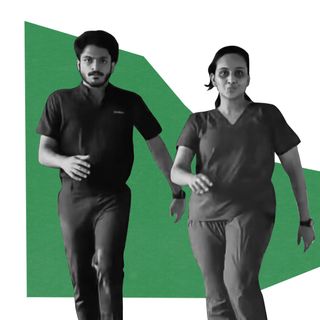Scientists from across the country have announced a competition for students to apply a scientific lens to the government’s pseudo-scientific ‘cow science’ claims.
Earlier this week, Science and Technology Union Minister Harsh Vardhan addressed representatives from different ministries, directing them to fast-track approval and funding for research projects aimed at promoting the benefits indigenous cows have to offer in the fields of the environment, economics, and health. He asked for ‘significant’ progress in research before the Prime Minister’s speech on Independence Day — because “people these days want scientific validation.”
The present competition is seeking research proposals from students that plan to apply the scientific method objectively to ‘cow science’ claims in order to confirm — or, critically, debunk — them. It is an attempt to register a form of protest against the government’s inter-ministerial funding program on ‘cow science’ research, called the Scientific Utilisation Through Research Augmentation Prime Products from Indigenous Cows, or simply SUTRA-PIC.
The scientists behind the competition had written to India’s Department of Science and Technology criticizing the unscientific confirmation bias of SUTRA-PIC. But when this letter, which had more than 400 signatures, didn’t yield any response from the government, they decided to announce this competition to counter all ‘cow science’ claims.
“There has been an acceleration in pseudoscience in recent times. … For science to thrive, people have to not believe things that they are told without evidence. A society must always question. If that doesn’t happen, it is extremely worrisome,” Soumitro Banerjee, a professor from Indian Institutes of Science Education and Research (IISER), had told Quartz in February.
Related on The Swaddle:
In U.P., Cow Slaughter Is the Most Common Reason for Detention Under the National Security Act
It may be possible to debunk most ‘cow science’ claims simply through sheer logic, but in a bid to convince the maximum number of people — especially those who believe the scientific community is opposed to ‘cow science’ because of a Western bias — the scientists decided to disprove with scientific rigor the government’s claims, says the document announcing the competition.
“The only way to defeat bad science would be to contrast it with good science,” Aniket Sule, a researcher at Tata Institute of Fundamental Research (TIFR) who has been actively involved in outreach for the competition, told The Print. He hopes that the program can contribute to the creation of a database that exposes the unscientific nature of the claims, for present and future use.
This isn’t the first time the government has backed public awareness of and research into pseudoscience. In 2017, the government set up a 19-member committee to prove the benefits of panchagavya, a mixture of cow dung, cow urine, curd, ghee, and cow milk. And earlier this year, the University Grants Commission, commonly known as the UGC, which is charged with maintaining the standards of higher education in the country, had asked universities across the country to encourage their students to take an online examination on ‘cow science.’ Due to widespread criticism and the refusal of certain universities to conduct it, the exam was postponed, Scroll reported.
Scientists involved in the debunking competition are affiliated with institutions like the TIFR and the Tata Institute of Social Sciences in Mumbai, IISER in Kolkata, and the National Institute of Mental Health and Neuro-Sciences in Bangalore.
Having announced the competition, they are now awaiting research proposals. “We are hoping that the students who can think rationally will showcase some good proposals,” Sule stated.




